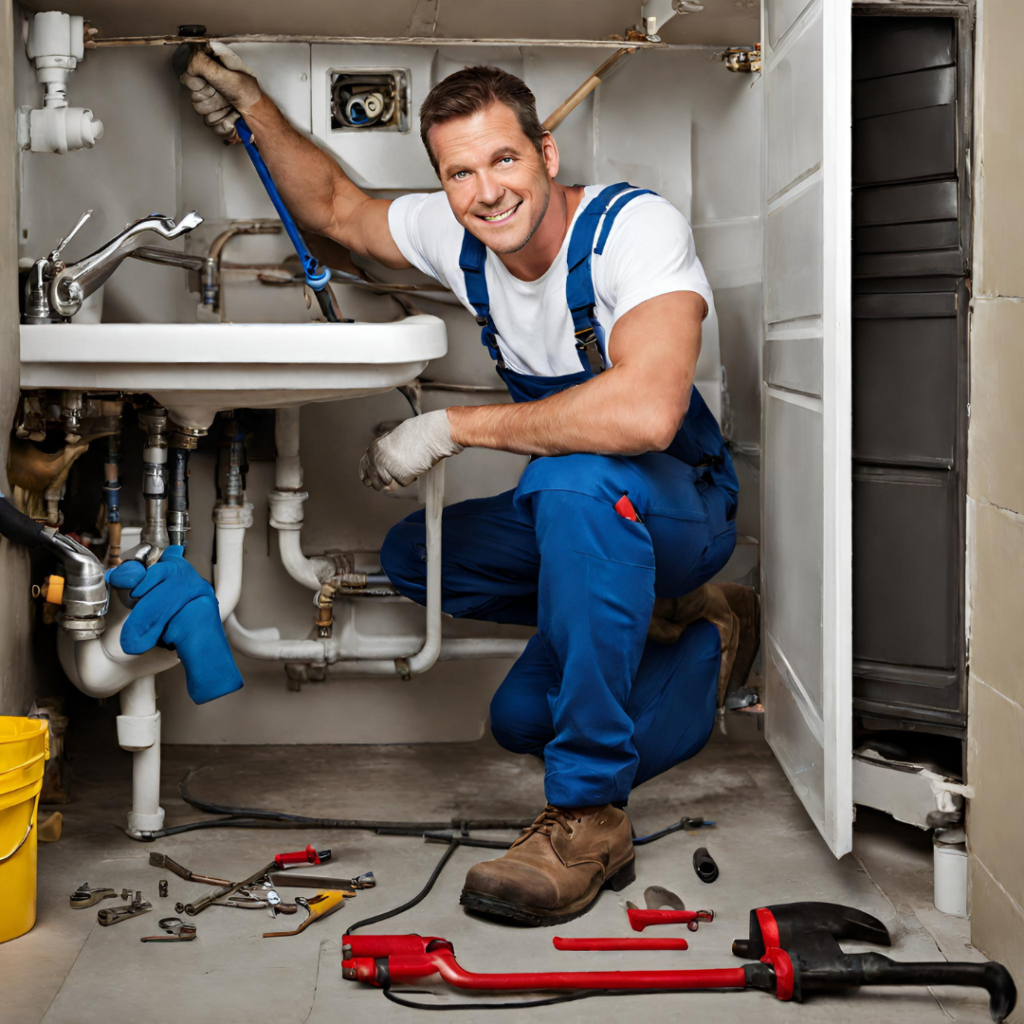[ad_1]
Introduction:
The water heater is a crucial appliance, supplying hot water for various household tasks, including bathing, showering, dishwashing, and laundry.

Sustaining its Longevity and Peak Functionality
Consistent maintenance is crucial for sustaining your water heater’s longevity and peak functionality. While it’s advisable to schedule professional inspections periodically, you can perform several simple do-it-yourself (DIY) water heater maintenance tasks to keep your unit running efficiently. This guide will walk you through the essential steps to maintain your household water heater.
Turn Off the Power Supply:
It is crucial to disable the power source to the water heater prior to initiating any maintenance activities. For electric water heaters, locate the circuit breaker and switch it off. In the case of a gas water heater, adjust the gas valve to the “pilot” setting.
Flushing the Tank:
Over the course of time, sediment and mineral accumulations may gather at the bottom of the water heater tank, reducing its efficiency. To eliminate these deposits, flush the tank by attaching a hose to the drain valve at its bottom and directing it to a nearby drain or outdoors. Open the valve to allow the water to flush out, and repeat this process until the water runs clear.
Check the Pressure Relief Valve:
The essential safety role of the pressure relief valve is to discharge any surplus pressure from the tank. Verify the valve’s functionality by lifting the lever and allowing water to pass through. If it doesn’t operate smoothly or water leaks afterward, it may be time to replace the valve.
Inspect for Leaks:
Inspect all connections and fittings for any indications of leaks. If you observe water gathering around the tank’s base or along the pipes, address the problem promptly. Secure any loose connections or replace damaged components to reduce the risk of water damage and maintain the heater’s longevity.
Insulate Exposed Pipes:
Applying insulation to the pipes linked to your water heater can effectively minimize heat loss and lower energy consumption. Use pipe insulation sleeves to cover hot water pipes, especially in unheated basements and crawl spaces. Implementing this simple step can improve the overall effectiveness of your water heating system.
Adjust the Temperature:
If needed, examine and modify the temperature settings of your water heater. Reducing the temperature can not only conserve energy but also prevent scalding. Many water heaters come equipped with a thermostat that enables you to establish the desired temperature. Consult your unit’s manual for specific instructions.
Keep the Area Around the Heater Clear:
Ensure there is no disarray or debris in the proximity of your water heater. Adequate ventilation is essential for gas water heaters, so avoid storing items close to the unit. This aids in preserving adequate airflow and avoids the risk of overheating.
Inspect Anode Rod:
The anode rod deters corrosion within the water heater tank by drawing in corrosive elements. As time progresses, the rod may deplete and require replacement. Conduct an annual inspection of the anode rod, and if over 6 inches of the core wire is exposed or if significant corrosion is observed, replace it. This uncomplicated measure can substantially prolong the lifespan of your water heater.
Check for Strange Noises:
Unusual sounds, like banging or rumbling, could indicate sediment accumulation or other problems within the tank. If you observe these noises, contemplate flushing the tank as outlined earlier. If the sounds persist, it may indicate a more substantial issue, and it is recommended that professional assistance is sought for a thorough inspection.
Examine the Pilot Light (Gas Water Heaters):
If you have a gas water heater, regularly check the pilot light to ensure it’s burning consistently blue. A flickering or yellow flame could indicate a combustion issue, potentially involving the gas supply or burner. If you observe any irregularities, turn off the gas and consult a professional for a thorough examination.
Emphasis on Professional Assistance:
While DIY maintenance is beneficial, certain issues require the expertise of a qualified technician. If you encounter complex problems such as persistent leaks or if you’re unsure about any aspect of your water heater maintenance, it’s imperative to seek the services of a Authorized plumber. These experts possess the knowledge and experience to diagnose and address intricate issues, ensuring the safety and efficiency of your water heating system. Regularly scheduling professional inspections can catch potential problems early, saving you from costly repairs, emergency plumbing incidents and ensuring your water heater operates at its best for years.

Conclusion:
Consistent DIY maintenance for your water heater is a straightforward yet efficient method to prolong the lifespan of your appliance and enhance its overall performance. Adhering to these procedures can preempt potential issues, enhance energy efficiency, and guarantee a consistent hot water supply to meet your household requirements. If you come across issues outside your area of expertise, feel free to seek the guidance of a professional to ensure the optimal functioning of your water heater.
[ad_2]
Source_link


